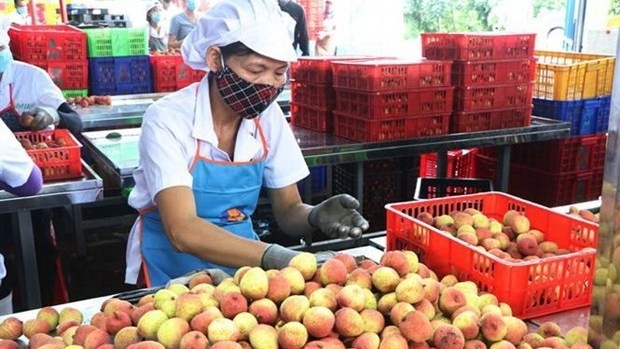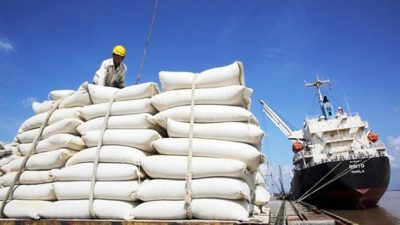
|
Agricultural exports to China posted impressive growth between January and May, with shipments of some produce even matching or surpassing the corresponding figures for the entire 2020, data of the Plant Protection Department under the Ministry of Agriculture and Rural Development showed. |
|
During the period, Vietnam shipped over 468,000 tonnes of mango to China, equivalent to 112 percent of last year’s figure; 348,000 tonnes of banana, 87%; 301,000 tonnes of jackfruit, 92 percent; and 1.1 million tonnes of dragon fruit, 63%. The Nong nghiep Vietnam (Agriculture of Vietnam) Newspaper cited Hoang Trung, Director of the Plant Protection Department, as saying that China has long been the main importer of Vietnamese farm produce, and although Vietnam is working hard to diversify export markets, this could not be done overnight. Given this, China will remain the largest buyer of Vietnamese agro-forestry-fishery products in the time to come, he noted. As China has set increasingly strict standards for agricultural imports from other countries, since 2018, the Plant Protection Department has coordinated with localities, businesses, and cooperatives nationwide to meet the importer’s requirements. Within three years, Vietnam granted 3,400 production unit codes for many products to serve different export markets. In particular, 1,703 production unit codes were given to farming areas and 1,776 others for packaging facilities in order to meet requirements for exports to the Chinese market, Trung said. The country has been maintaining smooth exports of several key fruits via official channels to China such as mango, banana, dragon fruit, longan, lychee, jackfruit, and water melon. The two sides have reached consensus on plant quarantine solutions for sweet potato and durian while pomelo, passion fruit, and coconut are among those awaiting negotiations, the official added. Regarding the competition from Thai and Cambodian rivals in the Chinese market, which is normal in an open economy, Trung said it will encourage businesses and farmers to cooperate with one another more strongly and professionally so as to improve product quality, reduce production cost, and boost the competitiveness of Vietnamese goods in the global market. Source: Nhan Dan Online |


